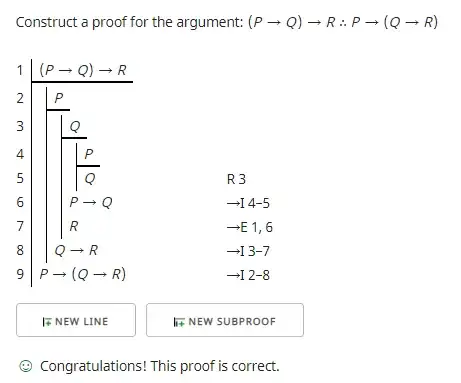I have been tasked by my professor to provide a proof of the following logic statement, including all necessary justifications and claims:
$$(p \to q) \to r \vdash p \to (q \to r)$$
I have applied the rules of inference to break the given premise down into its components, but have made no headway towards a solution. Thus far in the course I haven't been given any other method of proving this statement, so I know it should be solvable using these rules.
What am I missing?
